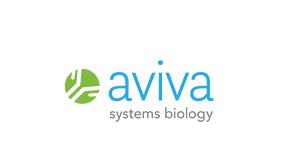ETF1 Antibody - N-terminal region : HRP
ETF1 Antibody - N-terminal region : HRP
Artikelnummer
AVIARP54738_P050-HRP
Verpackungseinheit
100μl
Hersteller
Aviva Systems Biology
Verfügbarkeit:
wird geladen...
Preis wird geladen...
Conjugation: HRP: Horseradish Peroxidase
Description of Target: Termination of protein biosynthesis and release of the nascent polypeptide chain are signaled by the presence of an in-frame stop codon at the aminoacyl site of the ribosome. The process of translation termination is universal and is mediated by protein release factors (RFs) and GTP. A class 1 RF recognizes the stop codon and promotes the hydrolysis of the ester bond linking the polypeptide chain with the peptidyl site tRNA, a reaction catalyzed at the peptidyl transferase center of the ribosome. Class 2 RFs, which are not codon specific and do not recognize codons, stimulate class 1 RF activity and confer GTP dependency upon the process. In prokaryotes, both class 1 RFs, RF1 and RF2, recognize UAA; however, UAG and UGA are decoded specifically by RF1 and RF2, respectively. In eukaryotes, eRF1, or ETF1, the functional counterpart of RF1 and RF2, functions as an omnipotent RF, decoding all 3 stop codons (Frolova et al., 1994 [PubMed 7990965]).
Immunogen: The immunogen is a synthetic peptide directed towards the N terminal region of human ETF1
Molecular Weight: 49kDa
Peptide Sequence: Synthetic peptide located within the following region: ISLIIPPKDQISRVAKMLADEFGTASNIKSRVNRLSVLGAITSVQQRLKL
Product Format: Liquid. Purified antibody is supplied in high phosphate PBS, 100 mm phosphate, 150 mM NaCl, pH 7.6.
Protein Name: Eukaryotic peptide chain release factor subunit 1
Protein Size: 437
Purification: Affinity Purified
Subunit: 1
Description of Target: Termination of protein biosynthesis and release of the nascent polypeptide chain are signaled by the presence of an in-frame stop codon at the aminoacyl site of the ribosome. The process of translation termination is universal and is mediated by protein release factors (RFs) and GTP. A class 1 RF recognizes the stop codon and promotes the hydrolysis of the ester bond linking the polypeptide chain with the peptidyl site tRNA, a reaction catalyzed at the peptidyl transferase center of the ribosome. Class 2 RFs, which are not codon specific and do not recognize codons, stimulate class 1 RF activity and confer GTP dependency upon the process. In prokaryotes, both class 1 RFs, RF1 and RF2, recognize UAA; however, UAG and UGA are decoded specifically by RF1 and RF2, respectively. In eukaryotes, eRF1, or ETF1, the functional counterpart of RF1 and RF2, functions as an omnipotent RF, decoding all 3 stop codons (Frolova et al., 1994 [PubMed 7990965]).
Immunogen: The immunogen is a synthetic peptide directed towards the N terminal region of human ETF1
Molecular Weight: 49kDa
Peptide Sequence: Synthetic peptide located within the following region: ISLIIPPKDQISRVAKMLADEFGTASNIKSRVNRLSVLGAITSVQQRLKL
Product Format: Liquid. Purified antibody is supplied in high phosphate PBS, 100 mm phosphate, 150 mM NaCl, pH 7.6.
Protein Name: Eukaryotic peptide chain release factor subunit 1
Protein Size: 437
Purification: Affinity Purified
Subunit: 1
| Artikelnummer | AVIARP54738_P050-HRP |
|---|---|
| Hersteller | Aviva Systems Biology |
| Hersteller Artikelnummer | ARP54738_P050-HRP |
| Green Labware | Nein |
| Verpackungseinheit | 100μl |
| Mengeneinheit | STK |
| Reaktivität | Human, Mouse (Murine), Rat (Rattus), Rabbit, Dog (Canine), Guinea Pig, Cow (Bovine), Zebrafish, Yeast, Horse (Equine) |
| Klonalität | Polyclonal |
| Methode | Western Blotting, Immunohistochemistry |
| Human Gene ID | 2107 |
| Wirt | Rabbit |
| Produktinformation (PDF) | Download |
| MSDS (PDF) |
|

 English
English






